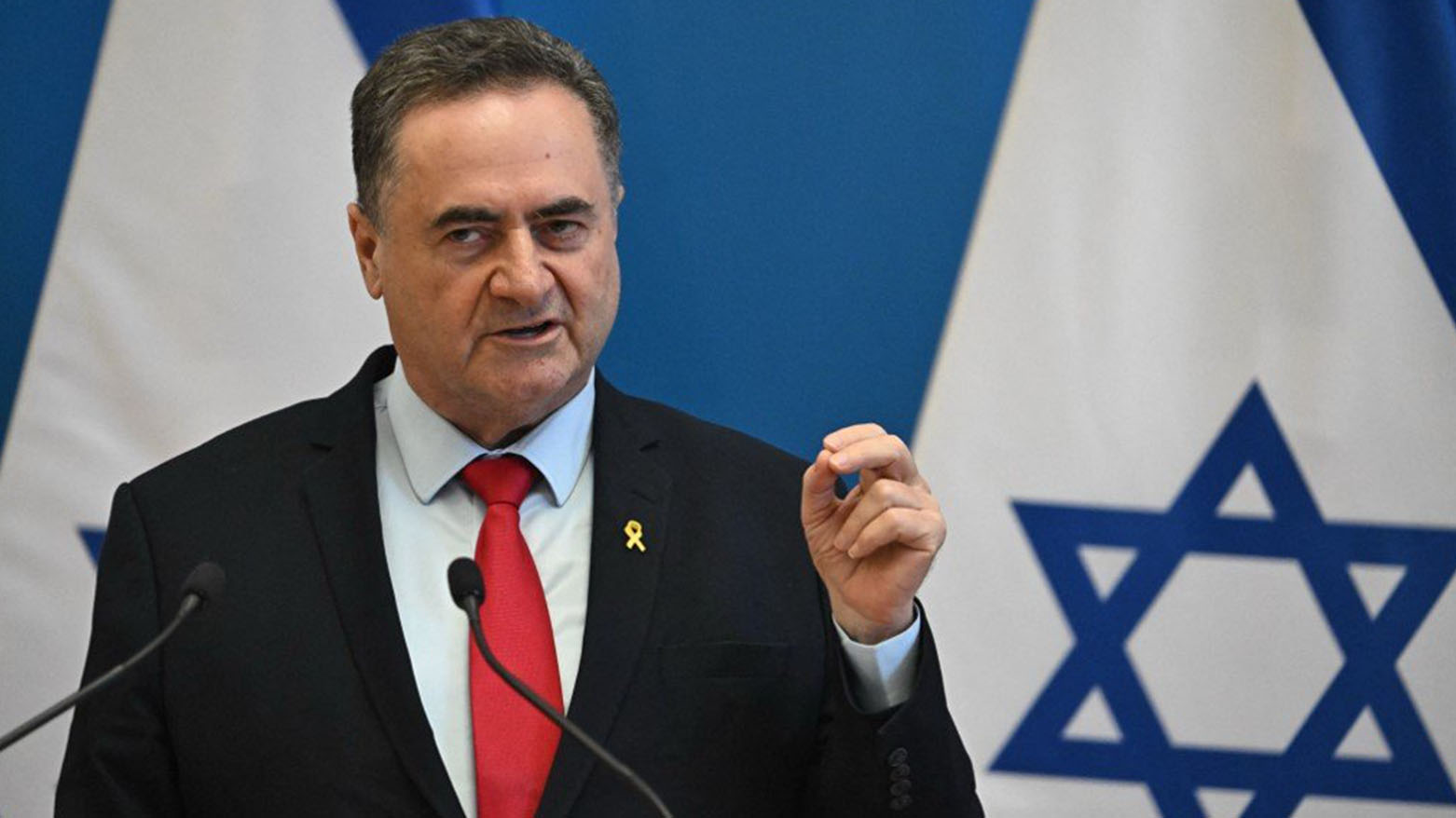Katz Vows ‘Gates of Hell’ on Hamas Until Hostages Freed
Israeli Defense Minister Israel Katz vowed the "gates of hell" for Hamas as he confirmed approval of a major offensive on Gaza City, threatening its destruction unless all hostages are freed, escalating the 22-month war amid a diplomatic standoff.

ERBIL (Kurdistan24) – Israeli Defense Minister Israel Katz issued a stark and uncompromising warning on Friday, declaring that the "gates of hell will open" upon Hamas in Gaza as he confirmed the approval of detailed military plans to defeat the group. In a fiery statement posted on the social media platform X, Katz outlined a strategy of "intense fire, evacuation of residents, and maneuvering," vowing that Gaza City would face the same fate as heavily bombarded areas like Rafah and Beit Hanoun unless Hamas capitulates to Israel's terms.
"We approved yesterday the IDF's plans to defeat Hamas in Gaza," Katz wrote. "Soon, the gates of hell will open upon the heads of Hamas's murderers and rapists in Gaza - until they agree to Israel's conditions for ending the war, primarily the release of all hostages and their disarmament." His message concluded with a chilling promise: "If they do not agree - Gaza, the capital of Hamas, will become Rafah and Beit Hanoun. Exactly as I promised - so it shall be."
Katz's declarative threat is not merely rhetorical; it follows concrete military actions already underway.
On Wednesday, the Israeli military announced that its forces had begun the initial stage of a planned operation to seize Gaza City. Military spokesman Brigadier General Effie Defrin confirmed that clashes had erupted south of Khan Younis and that the assault on the city had commenced, with Israeli troops circling its outskirts. "We will deepen the attack on Hamas in Gaza City, a stronghold of governmental and military terror for the terrorist organization," Defrin stated, describing Hamas as a "battered and bruised" guerrilla force.
The operational blueprint for this major escalation was finalized in the preceding days. According to a report by Asharq Al-Awsat on Wednesday, which a spokesperson from the Israeli defense ministry confirmed to Agence France-Presse (AFP), Defense Minister Katz approved the comprehensive military plan after a meeting with commanders. The plan includes the mobilization of approximately 60,000 reservists and is reportedly structured in four distinct phases: the construction of humanitarian infrastructure in southern Gaza, a coordinated evacuation of Gaza City, the encirclement of the urban center, and finally, a military maneuver into the city itself. The report noted that the looming offensive has already prompted thousands of fearful residents to flee toward other parts of the shattered territory.
This significant military escalation unfolds against the backdrop of intense, high-stakes diplomatic negotiations that had, just days earlier, shown signs of a potential breakthrough. Mediators Egypt and Qatar had been pushing a U.S.-backed ceasefire framework, and on Monday, Hamas announced its agreement to a new initiative they presented. Qatar’s Foreign Ministry spokesperson, Majed Al-Ansari, described Hamas’s response as "very positive," emphasizing that the proposal accepted by the group was "almost identical to what the Israeli side had previously agreed to." He issued a stark warning about the consequences of failure, stating, "If we don’t reach a deal now, we will face a humanitarian catastrophe that will make all those that preceded it pale in comparison."
The proposal reportedly included a two-month truce, a staggered release of the 50 remaining hostages, and a significant expansion of humanitarian aid into Gaza. Egyptian officials confirmed that the draft was finalized in line with a U.S. framework, with Diaa Rashwan, the head of Egypt's State Information Service, telling Al-Qahera News, "The ball is now in [Israel's] court."
However, Israel's official response was swift and firm, signaling a deep disconnect with the mediators' assessment. On Tuesday, the office of Prime Minister Benjamin Netanyahu reiterated that Israel’s policy "remains unchanged," demanding the immediate and unconditional release of all 50 hostages. The statement declared that Israel had entered the "decisive stage" of its war against Hamas and stressed, "we will not leave any hostage behind." An Israeli official further confirmed that this position aligns with the principles previously established by the security cabinet to conclude the war.
Adding an influential voice to the hardline stance, U.S. President Donald Trump weighed in on the crisis, insisting that the complete destruction of Hamas was the only viable path to securing the hostages' freedom. "We will only see the return of the remaining hostages when Hamas is confronted and destroyed," Trump wrote on his Truth Social platform. "The sooner this takes place, the better the chances of success will be."
The conflict, now in its 22nd month, began on Oct. 7, 2023, following a large-scale attack by Hamas on Israel. The ensuing Israeli military campaign has resulted in tens of thousands of deaths, displaced the vast majority of Gaza's population, and led to repeated warnings from international aid agencies about the severe risks of famine and disease. As Israel proceeds with a major offensive on Gaza City, the parallel tracks of intense military action and fragile diplomacy appear to be on a collision course, creating a critical and deeply uncertain juncture for the future of the conflict and the fate of those trapped within it.